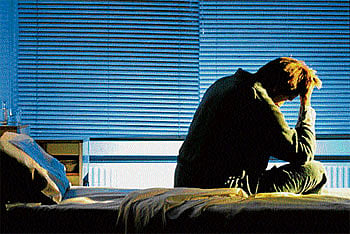Sleeping disorders are common among people these days, especially with many jobs demanding duty hours at night.

The victims mainly include policemen, firemen, BPO employees, doctors, nurses and journalists.
Unfortunately, graveyard shifts are a reality of modern age work and it is difficult to do away with them.
An editorial published in the New England Journal of Medicine says that in industrialised nations, up to 20 per cent of the population work either permanent or rotating night shifts.
Grave errors at work are known to have taken place during night shifts, the world over, as a result of fatigue and sleepiness, but the effects of continuously staying up late nights are even more disastrous on the workers’ health.
The negative effects of short sleep or bad sleep on graveyard shift workers were ignored for a very long time. However, now, doctors have started studying the problem more closely with a rising number of people coming to them with related problems.
Dr Deepak Raheja, a senior psychiatrist and psychotherapist says, “I get patients, who work night shifts and complain of insomnia, anxiety, depression and stomach problems. They are aware that their problem is due to their odd hours of work, but they feel that there is nothing they can do about it.”
He further says, “What I tell them is that a minimum of seven to eight hours of sound sleep is absolutely imperative for a healthy human being. You cannot do without it. Sleep has a restorative action on the body, mind and soul. You might ignore your sleep related problems for a while, but over a period of time, the symptoms start showing. It is a vicious cycle. In a matter of days, after regular night shifts, you start feeling groggy, irritable and unmotivated. During day time you will find it very difficult to sleep due to bad body adjustments and too much noise around. Some people take to alcohol and smoking after reaching this stage, which worsens the situation even further and ultimately it leads to a breakdown.”
Medical studies reveal that one has known to wake up with day light and go to sleep with darkness appearing since ancient times. To attempt the reverse of this, as all shift workers do, is to challenge millenniums of human programming.
Certain areas in the hypothalmus, a small portion of the brain, which coordinates many important functions in the body, gets confused signals when we disturb a normal sleep routine and ultimately sleep quality is severely damaged.
